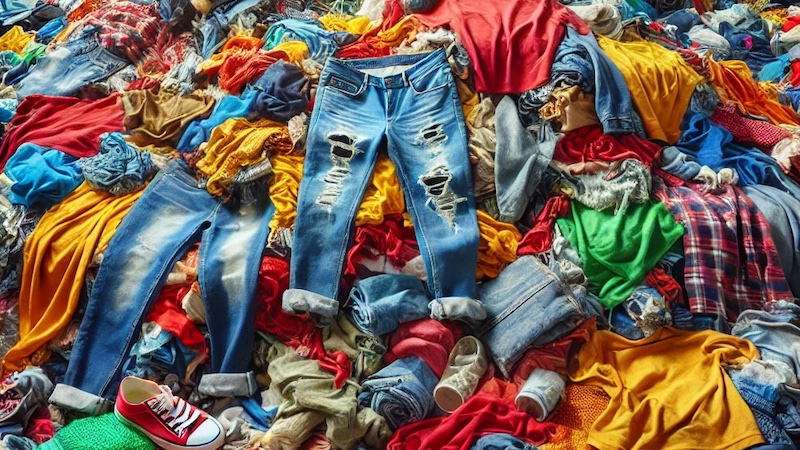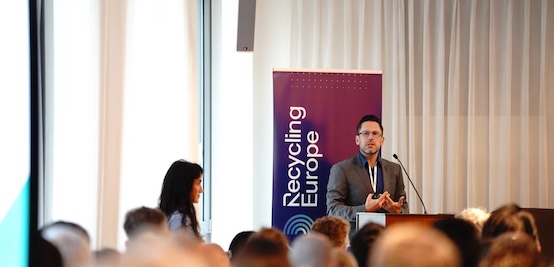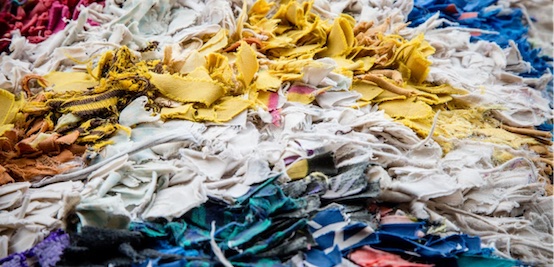#Recycling / Circular Economy
Crisis in Europe’s textiles sorting and recycling sector could trigger a domino effect

As a result, there is an oversupply of used textiles and a sharp decline in demand from traditional export markets. The trade in used textiles between the EU and non-EU decreased from 464,993 tonnes in 2022 to 430,185 tonnes in 2023 /1. Looking at Germany alone, the exports of used textiles to Ghana (one of Europe’s key export markets) have decreased from 7911.2 tonnes in 2020 to 4532.9 tonnes in 2023 /2. Additionally, demand for recycled materials remains low: recycled cotton had an estimated production volume of 319 000 tonnes in 2023 (compared to 24.4 million tonnes of virgin cotton) globally /3.
Consequently, prices for second-hand textiles have plummeted, while the costs of collection, sorting, and recycling have skyrocketed. Since spring 2024, the prices for sorted second-hand garments no longer cover processing costs, leading to major cash flow problems for sorting operators. Warehouses are becoming overwhelmed, increasing the risk of textile waste being incinerated. We call on the EU to encourage Member States to lower VAT on textile repair, reuse, and recycling activities, within the existing VAT Directive framework, and explore the possibility of introducing a tax on new, petroleum-based materials. Such measures, if adopted at national levels, would incentivise the use of recycled materials and reduce the environmental impact of virgin textile production.
This situation is likely to raise processing costs for municipalities, potentially resulting in higher waste disposal fees for residents, with the fear that the textiles will be thrown in the residual waste instead. Downstream players in the recycling chain, such as tearing and spinning mills, are also feeling the strain, leading to significant staff cuts.
To avert widespread bankruptcies, immediate financial and legislative support is essential. Short-term financial incentives for EU companies that contribute significantly to a sustainable circular textile chain are needed to safeguard the industry from collapsing. Investment in recycling technologies and infrastructure, alongside targeted support for municipalities dealing with textile waste stagnation, is crucial. We urge the EU to facilitate public-private partnerships to foster innovation in textile recycling and to scale up recycling technologies. This will help increase Europe’s capacity to process textile waste sustainably and efficiently. A swift revision of the Waste Framework Directive (WFD) and rapid implementation of Extended Producer Responsibility (EPR) schemes are also imperative.
In the mid-term, efforts should focus on making the textiles reuse and recycling sector competitive, in line with Commission President Ursula Von der Leyen’s ambition for a competitive and strong circular economy (through a future Clean Industrial Deal and Circular Economy Act). To reach this ambition, the EU needs to increase demand for recycled textiles, expand recycling capacity, and promote the use of sustainable materials through upcoming ecodesign requirements. We call for the mandatory inclusion of a percentage of recycled textile content (most preferably from post-consumer textiles) in all new textile products placed on the EU market, with a clear trajectory for increasing this percentage over the coming years. Without urgent action, Europe risks undermining its climate goals and jeopardising the future of its textile sorting and recycling industry.
1 Eurostat
2 German Federal Statistical Office
3 Textile Exchange, Materials Market Report 2024














